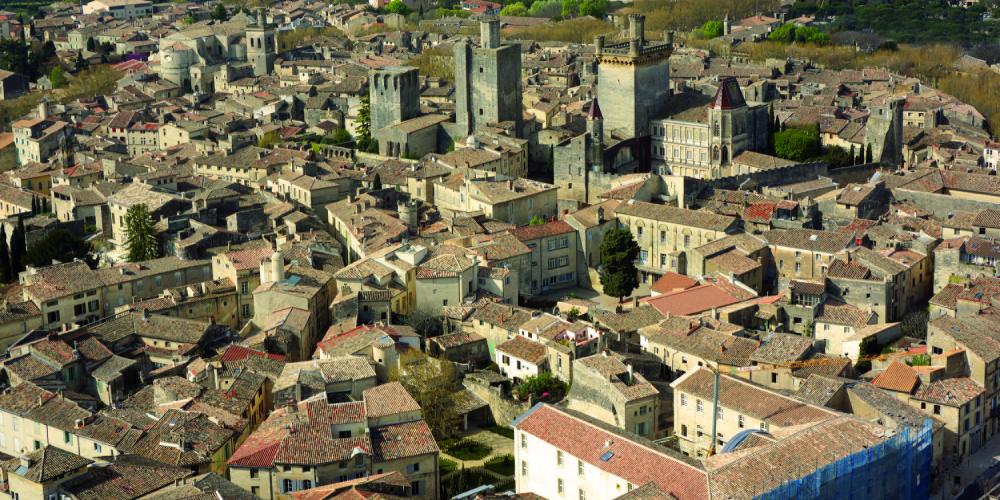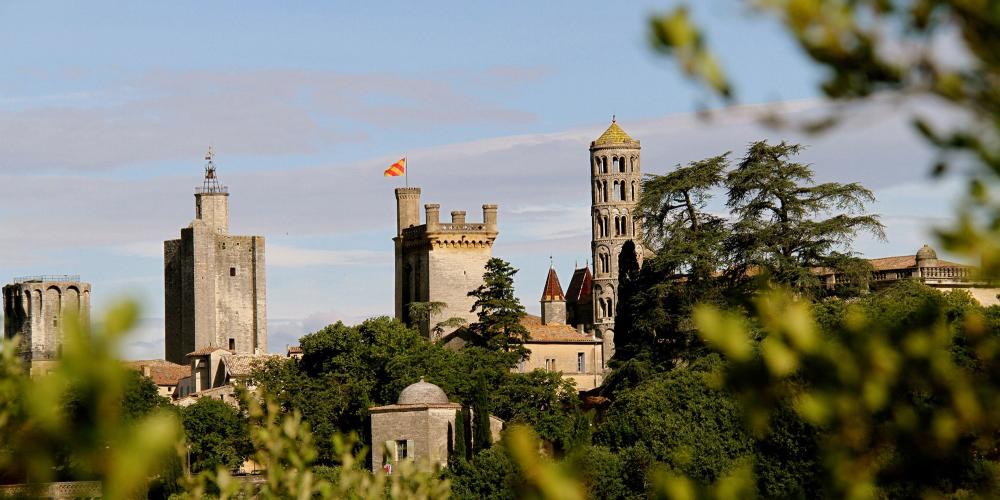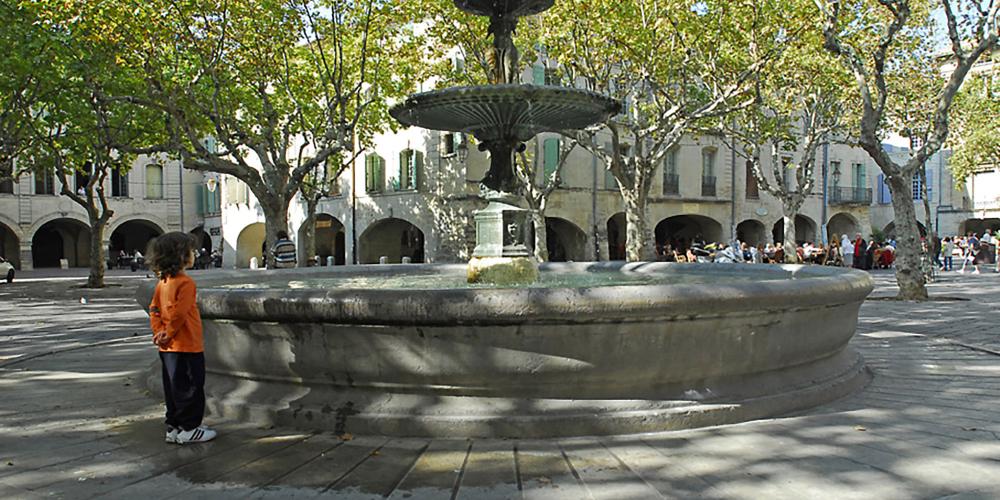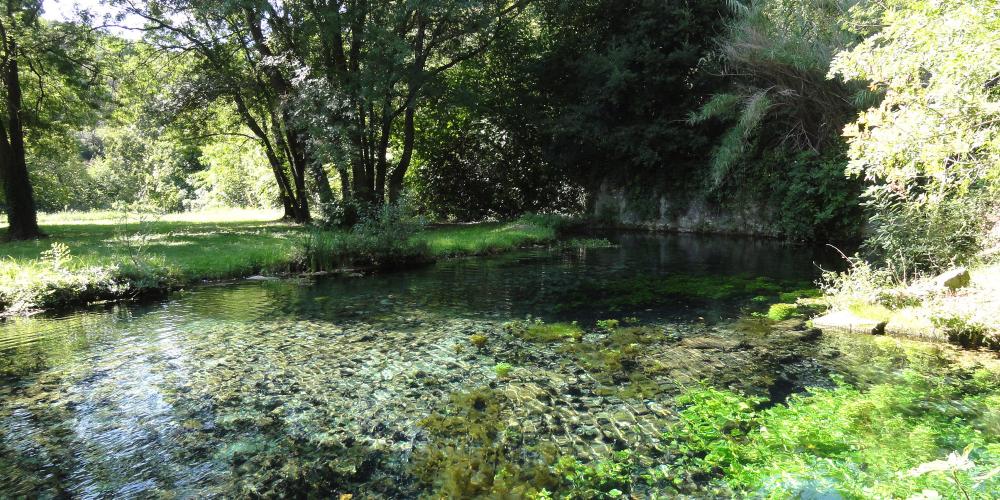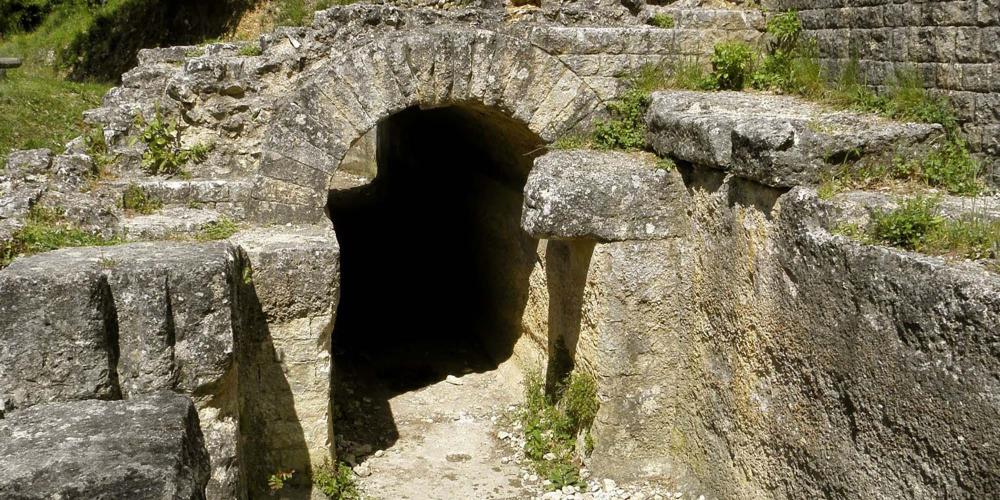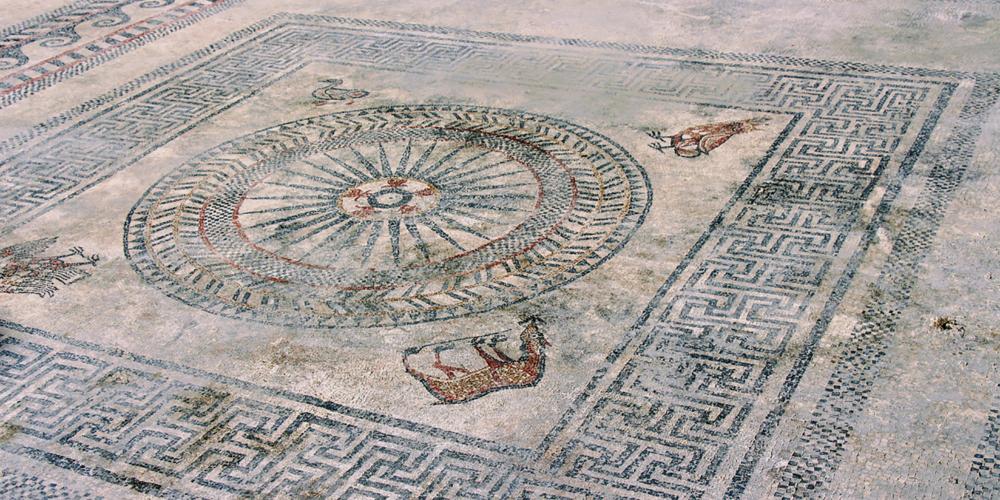Uzès, City of Art and History

Uzès, an enchanting city
The Romans founded Ucetia here, to the North of the medieval centre. Excavations carried out in these ancient urban areas have recently uncovered numerous remains dating from the 1st century BCE up until late Antiquity. A unique polychrome mosaic pavement, remarkable both in terms of its size (60 sqm) and its quality, was also discovered at the same time. One of the mosaics is decorated with geometric motifs framing central medallions, with illustrations of four animals at each corner: a fawn, duck, owl and eagle - possibly a tribute to the Roman gods.
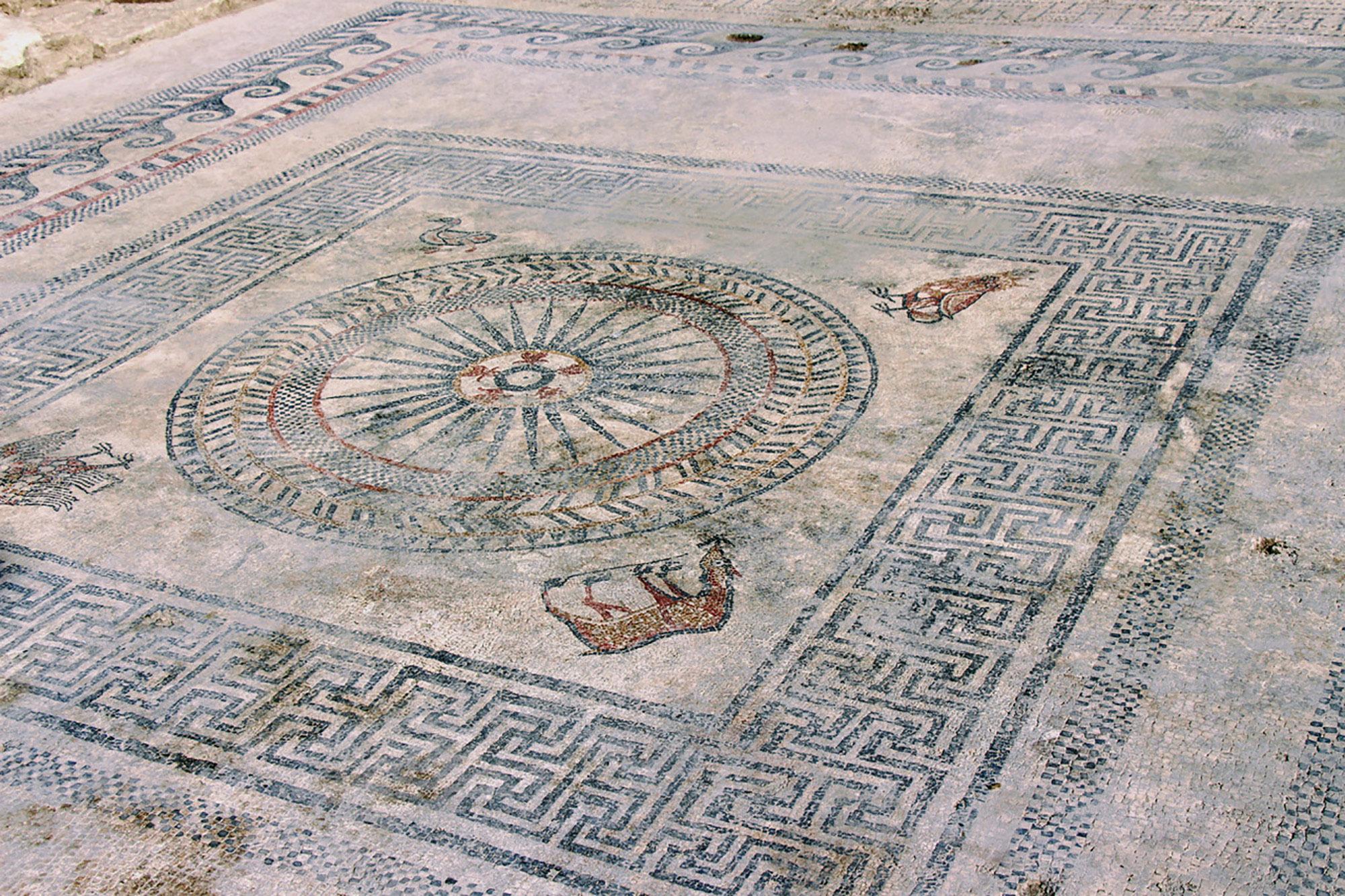
The first known remains of the aqueduct, around the ancient spring
Uzès also developed in the valley, at the foot of the hill, around the Eure springs, so visitors can journey back to the ancient past. These springs, which were first captured and channeled in the middle of the 1st century CE, via a 50 kilometer aqueduct, lay behind the construction of the Pont du Gard - the aqueduct's most famous remains - which channeled water from the Roman basin to Nîmes. Here you can discover the remains of this canalisation system as well as a regulation basin, both of which were in partial use until the 6th century.
Three towers for three powers
Stroll around the old streets of Uzès, which tell the story of the city's Medieval history, and discover the old Bishop's Palace. It was built in the 5th century, based on a Roman model. The Uzès bishops minted coins and dispensed justice, privileges which reflected their great power.
In 1229, the Languedoc region, of which Uzès was a part, was incorporated into the Kingdom of France. In 1632, the Duke of Uzès became the 1st duke and French peer. You can visit the Duchy, located in the heart of the city. It still belongs to the same ducal family who have been living there for more than 1,000 years.
If you look up, you will notice three towers which symbolised the three main powers that ruled over Uzès until the time of the Revolution. Not forgetting the Fenestrelle, the cathedral's Romanesque clock-tower with its unique architectural style. Together with the ducal palace, it is one of the city's symbolic landmarks.
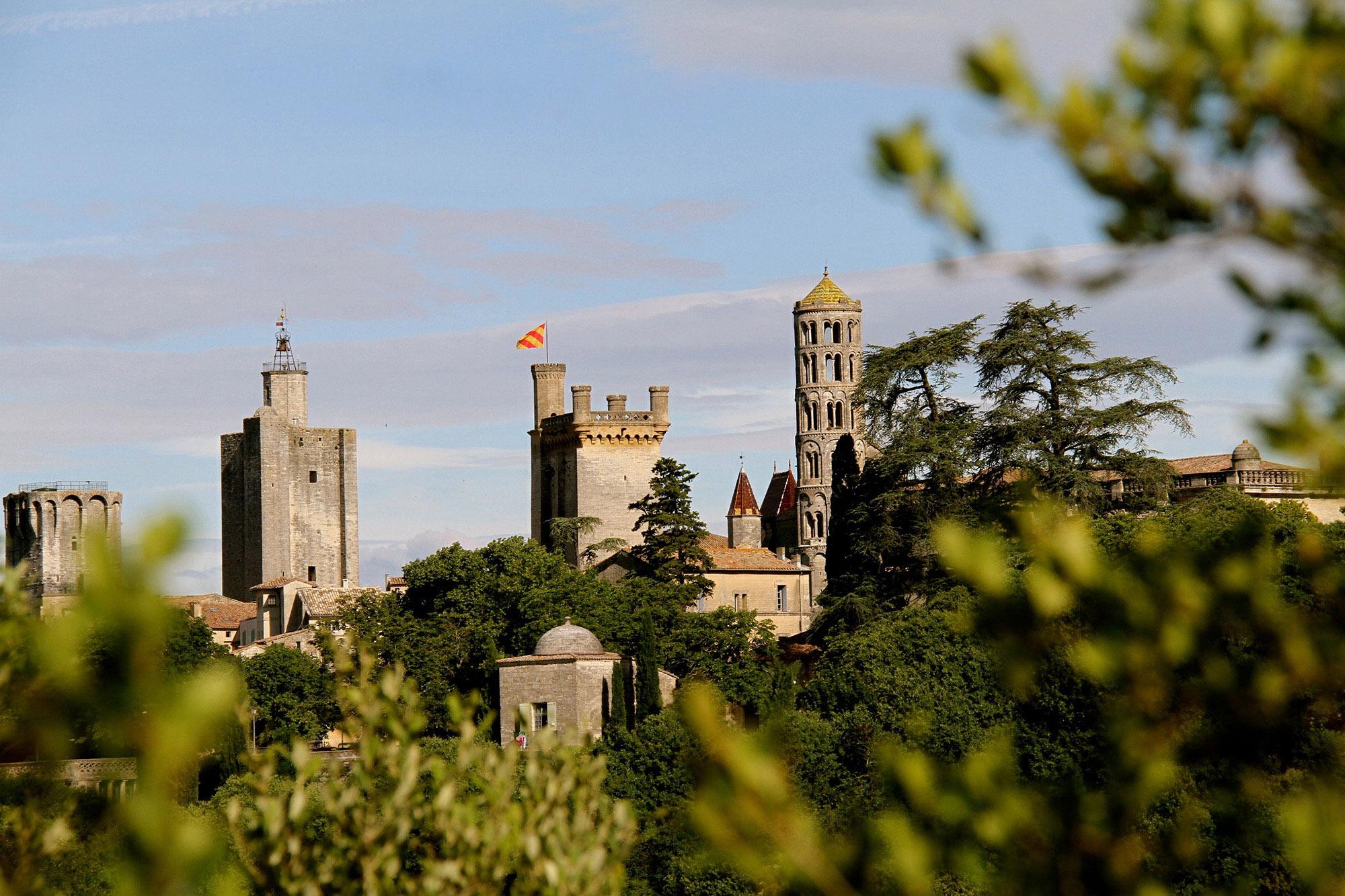
A remarkable architectural heritage
The city of Uzès, which was an important trading centre from the 13th century onwards, grew up around its main squares (place aux Herbes), with fairs, markets and later industries (particularly textiles). Wander around the narrow streets and admire the townhouses, with their remarkable façades, fountains and other buildings dating back to the 17th and 18th centuries.
Today Uzès, a designated city of Art and History, with its rich and exceptional architectural heritage, boasts a diverse history and variety of buildings.
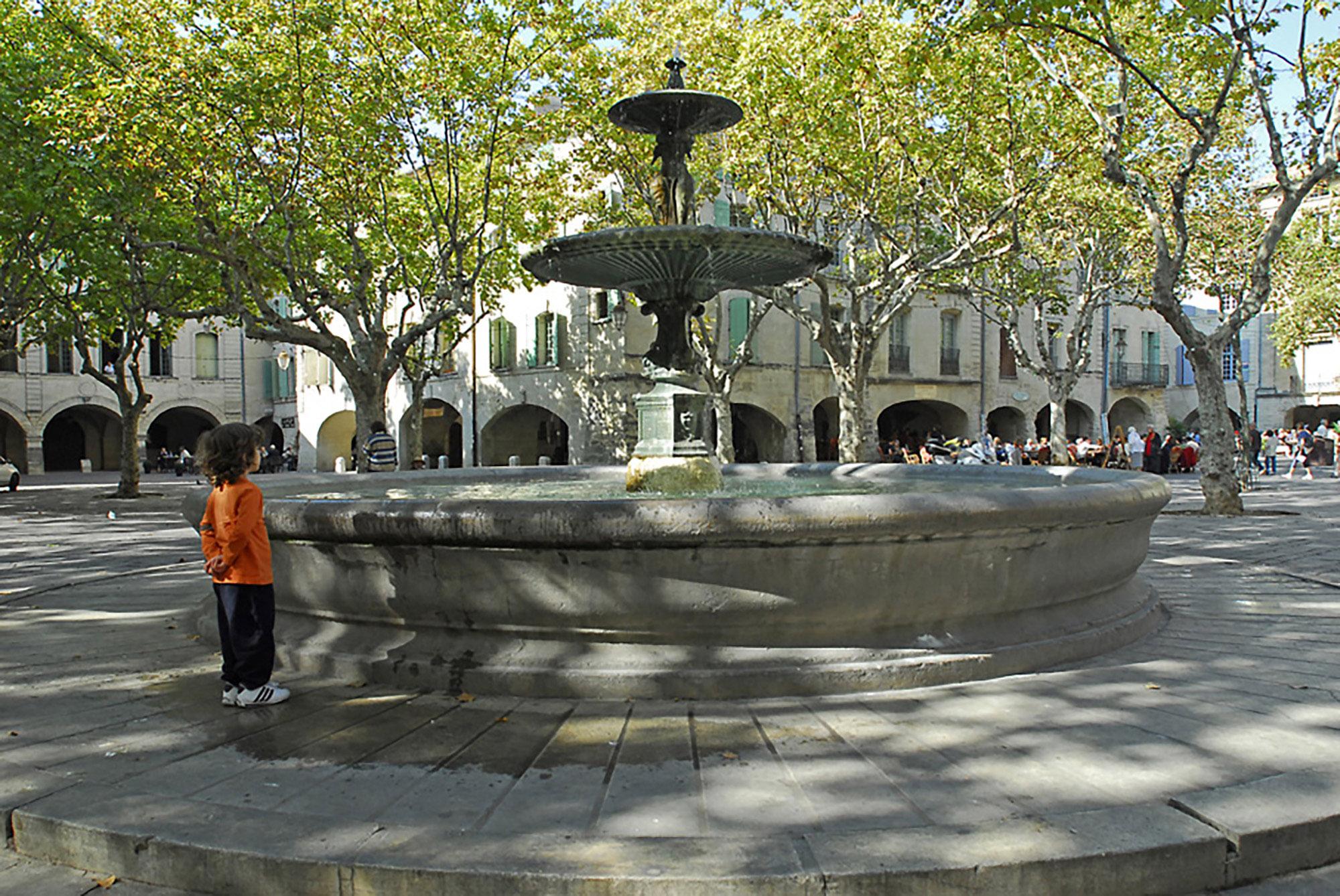
Practical information
Uzès, city of art and history: guided tours of historic centre
available throughout the year (duration: 2 hours, price: €5/€3) or themed tours -
also for young audiences and groups, available in foreign languages, (depending on season).
Uzès, City of Art and History
From 01/06 to 30/09:
Monday to Friday: 10:00 - 18:00 (19:00 from 01/07 to 31/08)
Saturday, Sunday and public holidays: 10:00 - 13:00 / 14:00 - 17:00
From 01/10 to 31/05 :
Monday to Friday: 10:00 - 12:30 / 14:00 - 18:00
Saturday: 10:00 - 13:00
Closed Sundays 01/01, 01 and 08/05, 01 and 11/11, 25 /12
